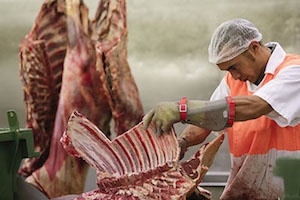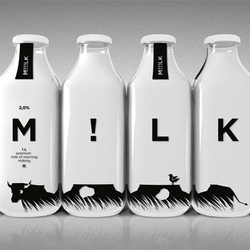On food safety, import substitution and the production of new generation food products
The topic of food security remains at the top of world news. Which involuntarily draws increased attention to the issue of food supply in Belarus. it happens that there are no Belarusian tomatoes on the counter, or prices for cucumbers increase, there will be fewer potatoes in nets, or vegetable oil will rise in price - consumers are already worried. Analyze the current situation and scientists. For competent information on ensuring food security in our country, the magazine turned to the director of the Institute for System Research in the Agroindustrial Complex of the National Academy of Sciences of Belarus, Doctor of Economics, Professor, Corresponding Member of the National Academy of Sciences of Belarus Andrei Pilipuk, BelTA informs.
- Andrey Vladimirovich, let's start with global indicators of food security. How do you assess the effectiveness of the integration of the national agro-industrial complex into the world market economy?
- Over the past decades, our small country has been consistently and confidently increasing its role as one of the leaders in the global food sector. Belarus occupies significant positions in the world ranking of agricultural and food producers: 6th in the production of skimmed MILK powder, 10th in animal butter, 12th in potatoes, 15th in whole milk powder, 16th in rapeseed oil .
In the structure of world trade, the share of Belarus in animal butter is about 5%, rapeseed oil - 4%, skimmed milk powder - 3-4%, cheese and cottage cheese - 3%, carrots, beets - 2-3%, sausages - 2 %.
Since 2000, the Food and Agriculture Organization of the United Nations (FAO) has annually noted that in Belarus, as in the most developed countries of the world (CANADA, Germany, France and others), there is practically no proportion of the undernourished population. According to the availability of the diet (taking into account the energy value) relative to the average (normative) nutritional requirement for a person, FAO indicates the indicator level of 134%.
Belarus has become not only a guarantor of its own food security, but also a country with export-oriented agricultural production. In 2022, the republic reached a record high in terms of food supplies to the foreign market - $8.3 billion, which is 24.2% more than in 2021.
According to these parameters, and taking into account the dynamics of growth, we can confidently speak about the high importance of our agro-industrial complex in the world market economy.
- But judging by the results of the global food security rating, in recent years the indicator of Belarus has decreased significantly ...
- Here are the figures that most clearly show the deep bias of the ratings of this rating for the last two years.
In the global ranking for 2020, our country was quite objectively placed in a high 23rd place: above RUSSIA, Poland, Spain, Greece, Kazakhstan, Hungary, Qatar, Saudi Arabia. As strengths of food security in Belarus, experts noted the low proportion of the poor in the total population, access to financing for agricultural producers, the availability of opportunities for the production of safe and high-quality food, minimal losses of agricultural products, sufficiency of food in the domestic market, a balanced diet of the population in terms of content proteins and micronutrients.
Let me give you one more fact: in 1974, at the World Conference on Food Problems, organized by the FAO in the wake of the global food crisis, it was decided to define common criteria for the food security of countries. One of the key indicators was the volume of grain production per person per year of at least 1,000 kg. This level has been reached in Belarus, and this means that we can fully consider ourselves a self-sufficient and food independent state.
Thus, even a cursory glance at the obvious successes of our country in the global food production system and a comparison of the open and widely known data I have indicated with the 55th place in which the "experts" placed us in the last ranking does not even cause indignation, but simple bewilderment . The authors of the document (Global Food Security Ranking (GFSI), which, by the way, is compiled by the Economist Impact analytical center), obviously, have not been conducting an objective analysis in recent years, but wishful thinking, completely ignoring the unconditional successes of our country in the field of food self-sufficiency based on own production. It is categorically impossible to accept and agree with such an assessment.
- The situation on national food security is monitored in Belarus every year. What do the results of recent years show?
- It is important to note that an effective system for ensuring national food security has been built in Belarus, which is based on a verified strategy and mechanisms focused on sustainable domestic production of basic agricultural products, raw materials and food and guaranteed access to high quality food for the population at socially fair prices .
It is the food security of the population that President of the country ALEXANDER LUKASHENKO not only puts at the forefront of all the most important socio-economic and foreign policy decisions, but also keeps this issue under constant personal control.
The document that defines the vector for solving problems in the agro-food sector - the Doctrine of National Food Security of the Republic of Belarus until 2030 - was developed by the National Academy of Sciences of Belarus together with government bodies and approved by the Council of Ministers. One of the key mechanisms is the monitoring of national food security, which, in accordance with the instructions of the government, is carried out annually.
The scientists of the Institute have developed and use a verified scientifically based list of indicators of the physical and economic availability of food, the level and quality of nutrition of the population, the environmental sustainability of agricultural production, public HEALTH, the awareness of citizens in the field of food security and other indicators. The balanced system of indicators and their threshold values includes 60 basic and more than 250 additional indicators.
The monitoring results of recent years prove that the country's food security is fully ensured at the national and regional levels. The integral index, which takes into account the sufficiency of own production, the level of consumption of basic products in relation to the rational one, and the quality of the population's diet in the energy assessment, is consistently higher than one. This means that the food security system is stable.
The doctrine defines 9 million tons as a sufficient volume of grain production. This level of own production takes into account the capacity of the consumer market, the growing need for animal husbandry and the EXPORT potential of the agro-industrial complex.
- But jumps in world prices for SUGAR, dairy products, and other popular positions affect Belarus too...
- The conjuncture of the world agro-food market over the past year has been formed under the influence of many factors that are difficult to predict. And in general remains unstable. This has a significant impact on the efficiency of commodity producers and branches of the agro-industrial complex.
At the same time, domestic enterprises once again confirm that they are able to fully meet the needs of the population of the republic in food under any external conditions, guarantee high quality and socially fair prices for their products, and also successfully compete in export markets.
At the end of 2022, the average value of the sugar price index was 114.5 points, which was the highest annual average since 2012. According to the International Sugar Organization, its production in the world is expected to increase to 182 million tons. Sugar production in Russia this season will also exceed the needs of the domestic market. The average value of the sugar price index in January is 1.1% lower than its December value. At the same time, the prospects for the Belarusian sugar industry are quite optimistic: the demand of the population remains stable in the domestic market, consumption from the confectionery industry is growing, and a capacious portfolio of deliveries under export contracts has been formed.
The average annual increase in the price index for dairy products in the world market over the past year amounted to 23.3 points, or 19.6%.
It should be noted that a significant increase in almost all cost components, including feed, fertilizers and energy resources, in many countries has led to a reduction in the number of cows and a decrease in milk production in the world. In Belarus, milk production in farms of all categories at the end of 2022 amounted to almost 7.9 million tons. It is possible to ensure a stable volume and high quality of raw milk due to the fact that the main production is concentrated in large-scale agricultural organizations, is carried out using modern technologies and strong own feed bases.
Over the past year, the average FAO MEAT Price Index has increased by 11.2 points, or 10.4%. World meat trade is approximately 41.6 million tons. Almost 39% of this volume is poultry meat, 31% is beef, 27% is pork, and up to 3% is lamb. The main factor in the development of the industry is the high demand for animal products. In recent years, dairy and meat products account for almost 60% of Belarusian exports. Consequently, the export basket is correctly oriented to market conditions.
The active participation of our country in international trade in agri-food products is based on the principles of food independence, which implies maximum autonomy and economic viability of the national agri-food system, the ability to successfully adapt to the world market conditions and rationally use its competitive advantages.
- Is such a concept as a deficit still relevant for the Belarusian market of agricultural food products, especially against the backdrop of sanctions?
- Food shortages do not threaten us. Moreover, the sanctions policy applied by the Western countries has become a kind of incentive for the growth of agricultural production and the increase in food exports.
The level of self-sufficiency of Belarus with basic types of food is high. In 2021, for potatoes, this indicator was 100%, vegetables and melons - 101.8%, vegetable oil - 228.2%, sugar - 154.4%, meat - 134.2%, milk - 263.3%, eggs - 127.7%. At the same time, it is important that the needs of the domestic market for food are met not only through domestic production - a significant export potential has been formed in the country's agro-industrial complex.
In 2022, agricultural production in the republic increased by 3.6% compared to last year. Farms of all categories produced 1.8 million tons of livestock and poultry (in live weight), 7.9 million tons of milk, and 3,466.3 million eggs. The gross harvest of grain and leguminous crops amounted to 8.7 million tons, rapeseed - 0.8 million tons, potatoes - 3.9 million tons, vegetables - 2.9 million tons, sugar beet - 4.2 million tons.
The regions also showed good results. The gross grain harvest in the MINSK region amounted to 2227.1 thousand tons, Grodno - 1758.9 thousand tons, Brest - 1567 thousand tons, Mogilev - 1137 thousand tons, Vitebsk - 1063.3 thousand tons, Gomel - 947, 7 thousand tons
High indicators in agriculture of the republic are not an accident, but the result of competent work at all levels: an effective agrarian strategy has been built, a clear planning of production volumes, resource and investment support for the development of the industry has been established, and the observance of strict technological discipline is constantly monitored at all stages of agricultural production.
- How many products per year are produced in Belarus per person?
- Belarusians are guaranteed access to high quality food. On average, per year, consumption per inhabitant of the country accounts for: meat and meat products - about 100 kg, milk and dairy products - 237 kg, vegetables, gourds and products of their processing - 170 kg, potatoes and potato products - 159 kg, fruits, berries and products of their processing - 95 kg, bread products - 77 kg, sugar - 39.9 kg, vegetable oil - 17.8 kg, eggs - 266 pieces.
Basically, Belarusians buy domestically produced food products - this is almost 80%. Moreover, the share of sales of certain types of domestic products in retail turnover is even higher: cheese - 95%, butter - 100%, meat and meat products - 99.7%, pasta - 68%, FLOUR - 90.1%, oatmeal and oat flakes - 92.6%.
The share of imports of agri-food products in the domestic market for most products is insignificant. Only certain products are imported to Belarus, which cannot be produced in the country due to natural and climatic conditions. These are tropical fruits, nuts, OLIVE OIL, coffee, cocoa beans and more.
Our country makes up for this shortcoming well with active food exports.
- Imported potatoes are also imported to the Belarusian market ...
- In Belarus, the volume of potato production is sufficient to meet the needs of the domestic market, create stocks of seed material and form stabilization funds. In the structure of plantings, varieties of Belarusian selection occupy 70% of the area. Varieties for various purposes are grown in the republic: for fries, chips, soups, mashed potatoes, potato pancakes. The yield increased by the same amount and amounted to 223 q/ha. The gross harvest of potatoes last year in farms of all categories amounted to 3857.3 thousand tons, which is 13.3% higher than in 2021. Thus, the volumes produced fully meet the needs of the country.
There are also imported products. This is mainly due to the supply of young potatoes from Uzbekistan, Kazakhstan, and Kyrgyzstan during the off-season. The growing season of this crop in the supplying countries comes earlier than in Belarus, so we can observe the presence of imported potatoes on our shelves. Consumer demand for it traditionally increases in late spring - early summer. Also, imported potatoes are used for breeding new varieties.
- Today, there is a lot of talk about the fact that sanctions pressure increases the need for import substitution. What types of new agricultural products are produced by domestic enterprises?
- In Belarus, import substitution issues have been dealt with for a long time, since food supply from the moment the independence of the republic was built on the basis of its own production. Today we have achieved good results. The issue of self-sufficiency of the domestic food market, which is balanced and able to develop steadily even in the conditions of an unstable world market, has been successfully resolved.
Along with the fact that processing enterprises pay considerable attention to preserving classic technologies as an image brand, they are mastering the production of new types of products, especially given the growing demand for products that replace imported analogues. For example, a special program for import substitution has been developed at Krasny Pishchevik. The company masters new types of products: chewing marmalade, fortified sweets and gelatins. The Slutsk cheese-making plant has been producing elite cheeses for several years, and "Old Amsterdam" is not inferior in taste to the Dutch "Maasdam". In general, significant progress has been made in the domestic cheese-making industry: over 380 types of cheeses are produced.
The meat industry does not lag behind, where enterprises offer the widest range of products: analogues of Spanish jamon, Italian meat delicacies in natural casings and noble mold. Elite varieties of sausages meet international requirements. In the domestic baby food market, 80% is occupied by the share of Belarusian products. Enterprises of Belcoopsoyuz started producing spices, which used to be brought into the country from abroad, and so on.
In the field of import substitution, work has been organized in all key areas. Measures are envisaged to expand the range of products, increase production volumes, reduce the import component in costs, use high technologies, and develop technological chains based on local raw materials.
The program of socio-economic development of the Republic of Belarus for 2021-2025 aims at rational import substitution, taking into account the release of new high-tech and export-oriented goods with maximum localization of production.
- Does our food security depend on exports?
- Expansion of sales markets allows leveling foreign trade risks. The main trading partners of our country in the group of agro-food products are Russia , other partners in the Eurasian Economic Union, and the CIS countries. I would like to separately note that trade relations with the Asian region, especially CHINA, are actively developing. Belarusian beef, poultry meat, skimmed and whole milk powder are in demand on the Chinese market, whey, sugar, rapeseed oil and a number of other products. Export deliveries to African countries are also increasing. Today, the geography of exports is more than 100 countries. Just think about it: half the countries in the world buy food from us. Belarus produces such food products that, by their consumer properties, allow entering any, even the most overregulated market. You can see that our agro-industrial complex producers are represented in all countries with an acceptable logistics price and the absence of artificial barriers.
- What strategy of promotion to the foreign market, in your opinion, will be the most effective?
- Given that the demand for Belarusian products in export markets is growing, it is important to make the most of the favorable market conditions to increase and improve the efficiency of export deliveries. About 60% of produced dairy products are supplied to foreign markets, about 30% - meat, over 70% - rapeseed oil, more than 50% - sugar, 30% - carrots and beets, about 20% - cucumbers. It is noteworthy that almost 88% of products are exported in processed or partially processed form, that is, with added value.
The development and improvement of the efficiency of foreign trade activity of export-oriented enterprises provides for several directions. First of all, this is the creation of recognizable regional food brands, the improvement of marketing policy and promotion aimed at creating a positive image of Belarusian products as high-quality and affordable for consumers. Priority development in the regions should be given to industries producing agri-food products with high added value and high consumer demand in the domestic and foreign markets. For promotion, it is important to use differentiated strategies by country and region, aimed at stimulating commodity and geographical diversification of export supplies.
- Can the export of organic products become a gold mine in the future?
- Belarus has been occupying leading positions in the world rankings for the export of dairy products for several years already: the country in this segment accounts for 6% of world trade. So this is our white gold. The production and export of organic goods is more of a marketing technique and the desire of foreign donors. In practice, we often observe that organic farms develop, exactly as long as there is replenishment from international grants and / or demand and orders from foreign countries. It must also be said that so far the question of the benefits and significance of such products in human nutrition, to put it mildly, is debatable. There are many studies that directly point out the disadvantages of organic production both for agriculture (economic, technological, soil and others) and for consumers (lower content of nutrients and important components in organic products).
- Our "export loaf" has grown largely thanks to Russia. How does the interstate interaction of the Union State, the Eurasian Economic Union affect the development of the agro-industrial complex and food security?
- Of course, it is important to use the possibilities of integration interaction between the countries of the Union State and the EAEU, which allows accumulating efforts for the joint development of the domestic market and import substitution. These are breeding, seed production, development of fruit and berry production, aquaculture, biotechnology, high-protein feed, veterinary medicine and more.
Interstate cooperation is expanding on the removal of obstacles and restrictions in the development of mutual trade and supplies, planning and forecasting the volume and structure of production. Agreed mechanisms are being developed for regulating and stabilizing the markets for agricultural products, raw materials and foodstuffs.
The measures taken have a positive impact on the dynamics of mutual trade in agricultural products and foodstuffs, and Belarus is actively using new opportunities. For example, in recent years, our country has occupied a share of 8.7% in the total volume of agricultural production in the EAEU, and more than 40% in the value of mutual trade in agricultural products and food in terms of exports.
There is certainly a potential for expanding mutual trade and economic interaction between the EAEU member states. In the future, care should be taken to pursue a coordinated policy regarding the development of trade with third countries, including joint development of new markets and increased export specialization. It is important to create favorable conditions and stimulate the development of cooperative value chains for agro-food products, which will strengthen the economic potential of the Union State and the EAEU in the world market.
Of priority importance is the development of cooperation in the field of high-tech industries focused on the needs of the agro-industrial complex of the Member States, including in seeds and plant protection products, breeding products, veterinary drugs, machinery and equipment. In this case, we are talking about the formation of advanced sectors of industry of national importance, which can be achieved with large-scale and comprehensive scientific support.
Belarus supports and actively participates in the implementation of scientific programs and projects within the Union State, the EAEU, the CIS, the results of which are aimed at strengthening food security and sustainable development of the agro-industrial complex.
- What new points of growth can be identified in the issues of ensuring food security in Belarus?
- Ensuring national food security is based, firstly, on the sustainable development of domestic production of basic agricultural products and foodstuffs, sufficient to ensure food independence and realize the export potential of the agro-industrial complex. Secondly, on ensuring the quality of agricultural raw materials and food products at all stages of the technological cycle. Thirdly, on the formation of a nutrition culture of the population, focused on the consumption of high quality food products.
In modern conditions, it is necessary to focus on the fundamental points of support in order to give them greater importance and make them the main sources of agricultural growth. To do this, we need to restructure the industry in terms of knowledge, the introduction of new technologies. First of all, this is the digitalization of industries and sub-sectors of the agro-industrial complex; selection and genetics; introduction of new types of services, services and solutions to optimize production and logistics processes.
Реализация поставленных перед АПК задач предполагает максимально широкое внедрение в практику хозяйствования товаропроизводителей результатов научных исследований и разработок, в том числе по повышению эффективности производства продукции растениеводства и животноводства, базирующихся на современных методах отраслевого и бизнес-планирования и обеспечивающих использование резервов экономии затрат, увеличения продуктивности и качества продукции.
Systematic work is being carried out in the republic on scientific support for the development of the agro-industrial complex, agriculture, and the food industry. High-yielding, globally competitive varieties and hybrids of agricultural crops are being developed, as well as energy-saving technologies for their cultivation. New breeds, types, lines and crosses of animals and birds are being created, including special technologies and systems in animal husbandry.
Domestic science, together with the food industry, offers new generation food production technologies that improve health and correspond to the high quality of nutrition of the population.
To ensure the sustainable development of the agro-industrial complex and agriculture, the country's leadership is implementing a set of measures aimed at creating favorable conditions for the growth of agri-food production and increasing its competitiveness, the formation of an effective organizational structure of the agro-industrial complex and the intensification of investment and innovation activities in the agri-food sector.



























































